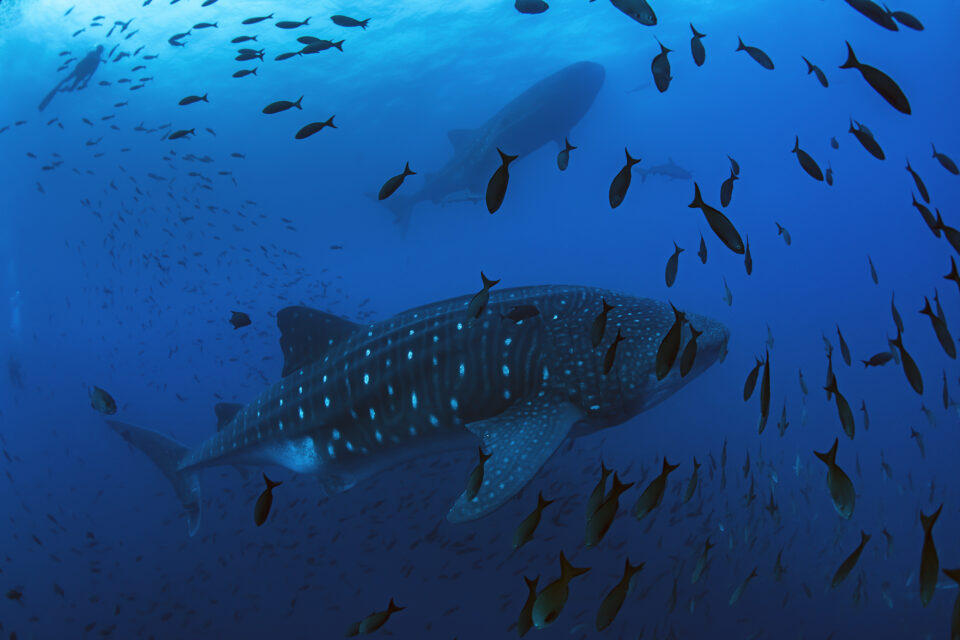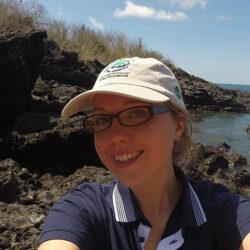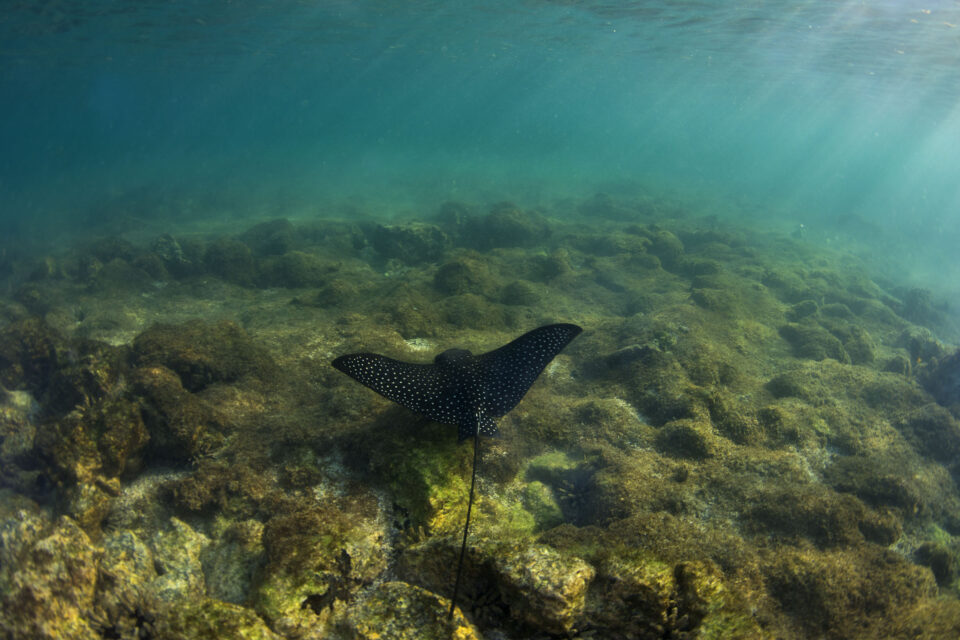

World Oceans Day 8 June – a reflection on the importance of the ocean
On World Oceans Day 2017, we reflect on the connections between our oceans, marine wildlife and our lives on dry land.
This World Oceans Day, I will be reflecting on connectivity. Our connection with our oceans may not be immediately relevant if you live in a big city such as London or Quito. In fact sometimes it’s not even that evident here in the Galapagos Islands, particularly in the highland areas.
The truth is, we are all inextricably linked with the ocean. From the often-quoted phrase that every second breath comes from the plankton photosynthesising, to providing a food source for a huge portion of the world’s human population, to the deniable wellbeing benefits of hearing the ocean waves crash on the shore and just, well, being near it. We must recognise this connection and ensure that we live in a harmonious way with our oceans, protecting the lifeline that they represent.
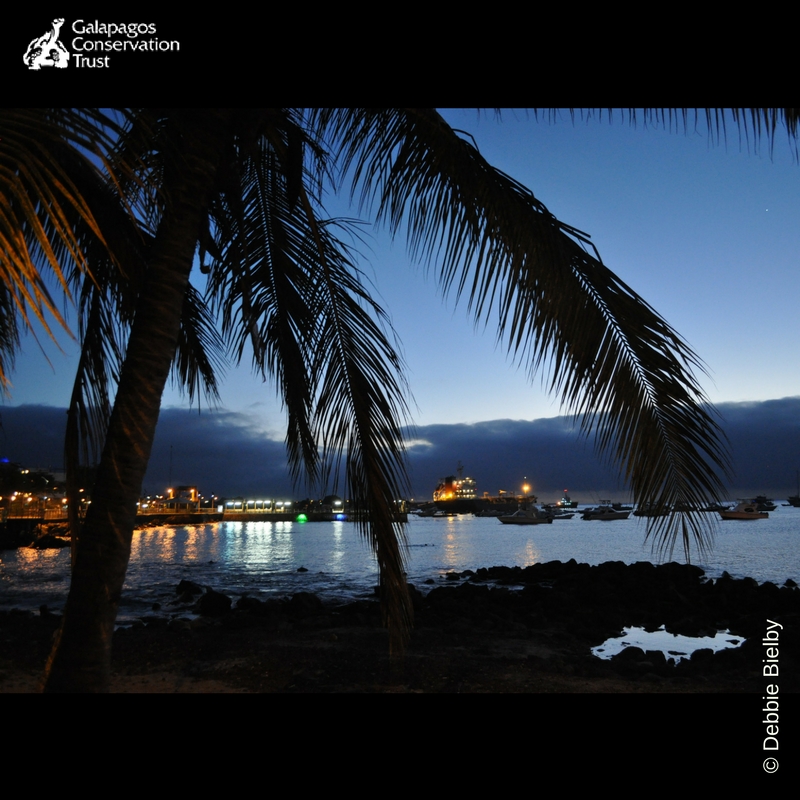
San Cristobal © Debbie Bielby
I have just had the amazing opportunity of accompanying some inspirational scientists from Migramar and the Galapagos Science Center for a week on a fishing boat-turned-research boat in the southern Galapagos Islands. When looking for marine megafauna, many hours of staring out to sea are required. Although perhaps boring to some, I found this to be hugely exciting with the potential of what could appear at any moment at the same time as promoting reflection, inspiration and an inner peace. A week at sea is a great way to give a perspective from a busy life.
We saw some incredible wildlife that calls the Galapagos Marine Reserve home. When results have been gathered and press releases drafted, I look forward to sharing the news from the trip very soon, I can guarantee it’s worth tuning in for!
Now to get used to being on land again, who knew that being landsick was a thing?!
How the water of the world allows us to breathe – from London
By Communications and Membership Assistant Jennifer Vidler
Today is World Oceans Day, a day where we reflect on the importance of the world’s oceans. This year’s central theme is ‘Our Oceans, Our Future’ and rightly so; the health of the oceans determines the health of the land, therefore we must understand the importance of the seven seas.
As Jen mentioned, every second breath each of us breathes comes from the ocean. The plankton and algae constantly photosynthesise, absorbing carbon dioxide and releasing oxygen into the atmosphere. Plankton also provides a food source for the majority of the ocean life, as well as a huge portion of the world’s human population.
Oceanic currents and frequent tides create global weather patterns. Seawaters around the globe warm and cool throughout the year, affecting the temperature of the land they reach, creating different climates and storms. For example, El Niño is a weather phenomenon that has a great effect on the terrestrial wildlife of Galapagos created by ocean currents. Once a year the cold Cromwell current lessens and the Panama and Humboldt currents increase, creating a change in sea and land temperature for months. This change can cause plants and wildlife in Galapagos to either wither or flourish, in turn affecting the human population on the Islands.
Water water everywhere but not a drop to drink. Not anymore! Thanks to modern technology, desalination of sea water is now an option for many people who live in areas lacking in plentiful, safe freshwater. Almost a billion people lack access to clean drinking water. Clean energy harnessed from the neverending waves allows us to lessen a number of harmful fossil fuels we consume; incredibly beneficial to the health of the oceans of the world, as well as the globe.
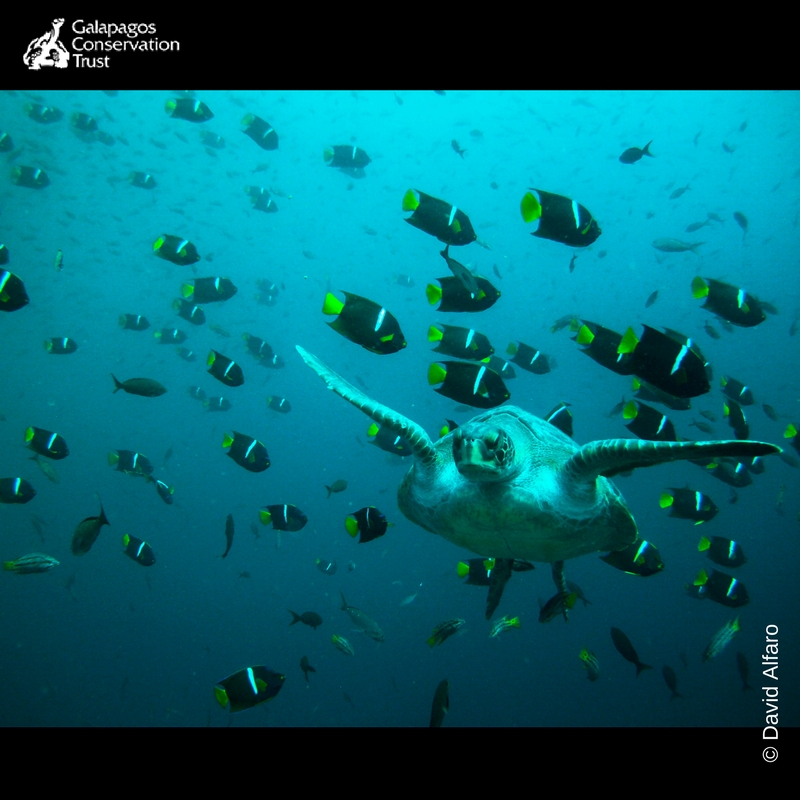
The oceans of the world provide opportunities for employment. According to the National Oceanic and Atmospheric Administration (NOAA), approximately 1 of every 6 jobs in the United States is marine-related. Marine careers include fishing, tourism, leisure energy and transport and food. Aquaculture can produce huge and varied amounts of food for human consumption. Seaweed, algae, fish and prawns are the most commonly chosen menu items both along coastlines and inland. With sustainable practices, food security and environmental costs can be balanced.
What will you do to help the ocean and its inhabitants thrive? After all, we do need the ocean for many things, but the most important thing is indeed to breathe. In order to create a healthy, positive world for the future generations we must act accordingly.
If you would like to support our work protecting the endangered animals of the Galapagos Marine Reserve, please consider donating to our Endangered Galapagos appeal or why not adopt a hammerhead shark? Also a wonderful Father’s Day present idea!
If you are interested in learning more about the geology of Galapagos, we have lots of information on our website, as well as our educational website, discoveringgalapagos.org
Related articles

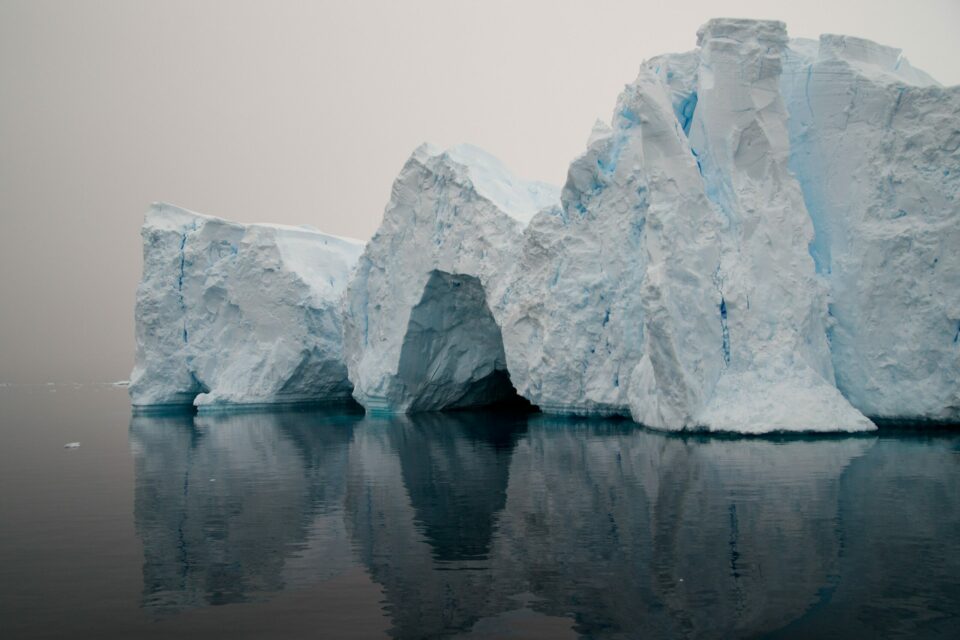
Galapagos and the Antarctic: A look beneath the surface
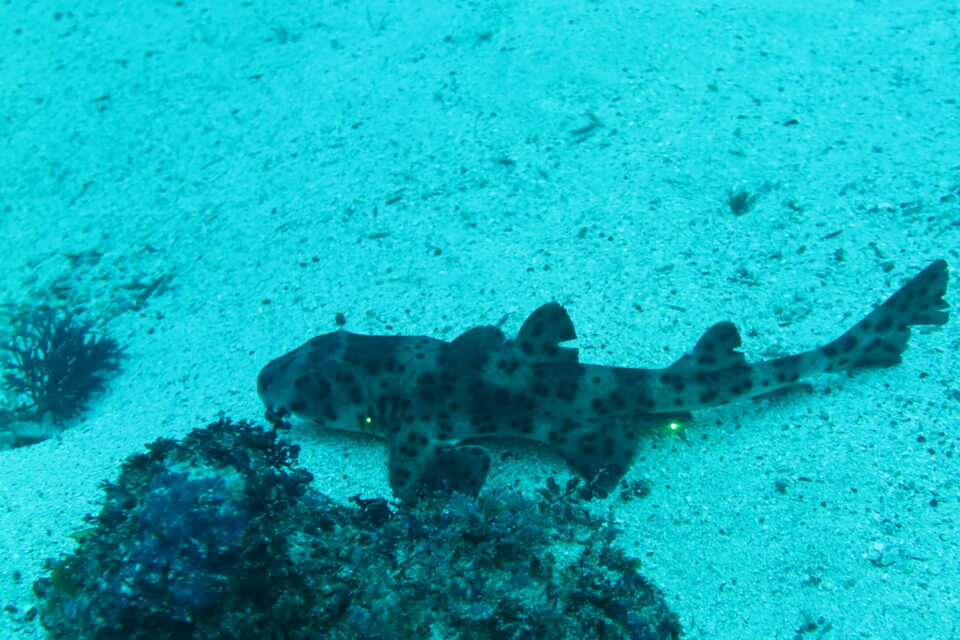
Galapagos Bullhead Shark Project: Citizen science in the Galapagos Marine Reserve
